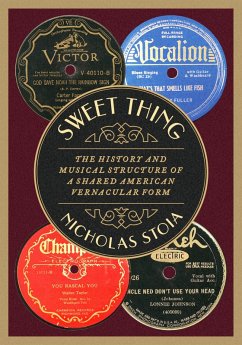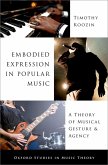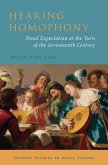As children, many of us learn to sing, "If you're happy and you know it, clap your hands." But despite the familiarity of this tune, few of us realize that what we're singing is actually part of a pervasive - and centuries-old - musical scheme. This particular pattern, the "Sweet Thing" scheme, has generated a large group of songs spanning a broad range of topics, genres, and time periods, but all related through a specific stanzaic form. Early twentieth-century blues songs "My Babe" and "Motherless Children," country songs "Peg and Awl" and "Crawdad Song," and gospel songs "Pure Religion" and "This Train" use this form, along with popular songs like Ray Charles's "I Got a Woman," The Beatles's "One After 909," and the Velvet Underground's "I'm Waiting for the Man."
Sweet Thing: The History and Musical Structure of a Shared American Vernacular Form studies one of the most productive and enduring shared musical resources in North American vernacular music. Author Nicholas Stoia offers the most comprehensive examination to date of the long history of the "Sweet Thing" scheme, exploring how it made its way from sixteenth-century Scotland to eighteenth-century British broadside ballads to nineteenth-century American ragtime. Stoia also examines the form in various contexts, including early blues and country music, and moving forward to rhythm and blues, soul, and rock music, connecting these modern forms to their ancient roots. Through this close look at a ubiquitous musical from,
Sweet Thing shows us how it has linked listeners and musicians alike across the boundaries of genre, race, and even time.
Dieser Download kann aus rechtlichen Gründen nur mit Rechnungsadresse in A, B, BG, CY, CZ, D, DK, EW, E, FIN, F, GR, HR, H, IRL, I, LT, L, LR, M, NL, PL, P, R, S, SLO, SK ausgeliefert werden.









